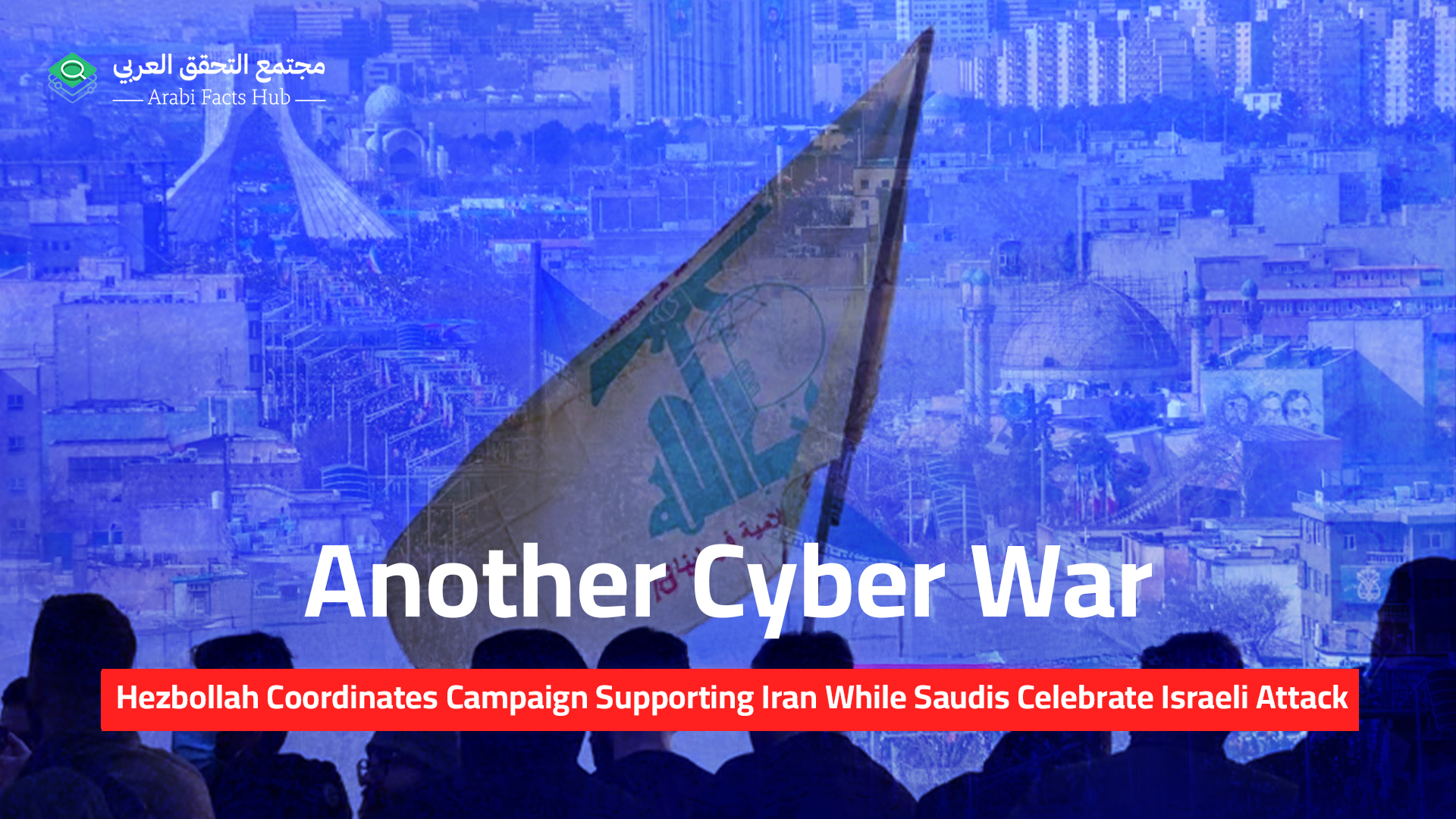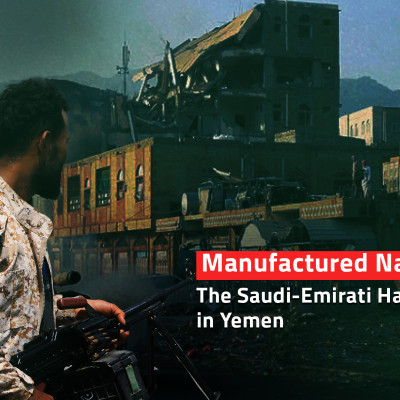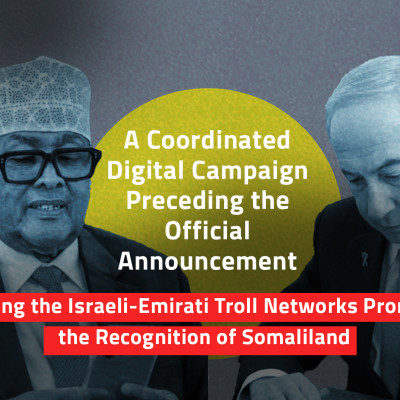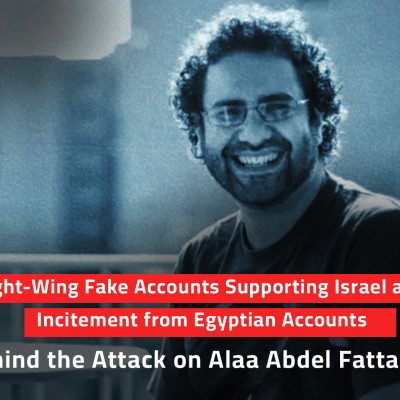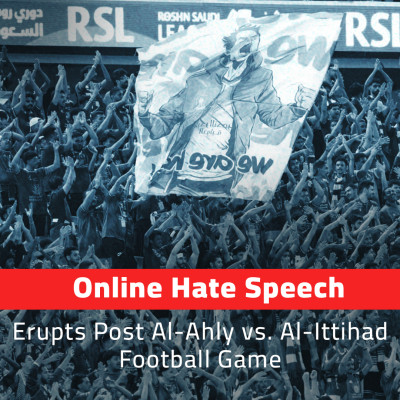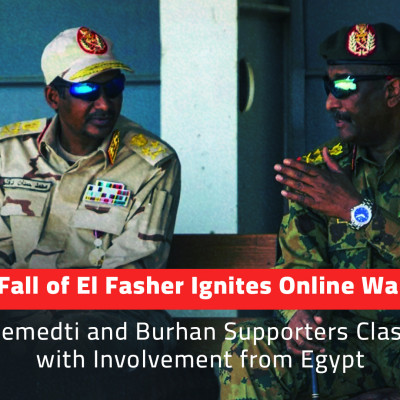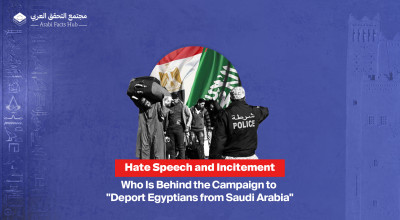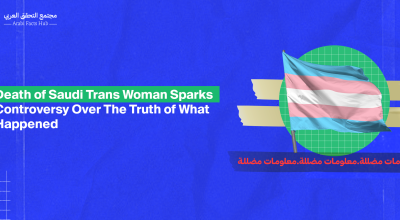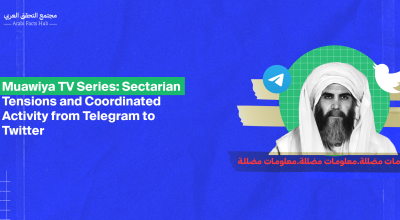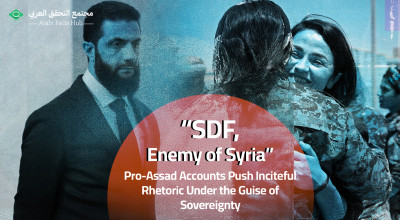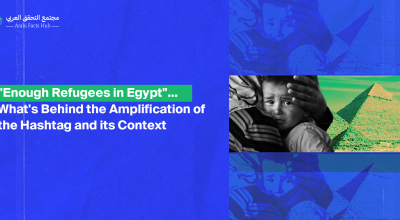Hezbollah Mobilizes Online
Three days after the Israeli strike on Iran, Hezbollah decided to join the digital front of the Iran-Israel confrontation by launching two hashtags: #إيران_صوت_الحق (Iran the Voice of Truth) and #سحر_إمامي (Sahar Emami).
Through its WhatsApp and Telegram channels, the party urged followers to tweet using the hashtags following Israel's bombing of the Iranian state television building. It stated:
“With its strike on one of the Iranian state TV buildings, the Israelis sought to project the image of terrorism they desire. But TV anchor Sahar Emami, with her Zainabi (strong) stance, seized the narrative and imposed the strength of the Iranian position. In support of the Islamic Republic—protector of the oppressed and bearer of the banner of truth—let us take part in the social media campaign using the hashtags #إيران_صوت_الحق (Iran the Voice of Truth) and #سحر_إمامي (Sahar Emami), starting now.”
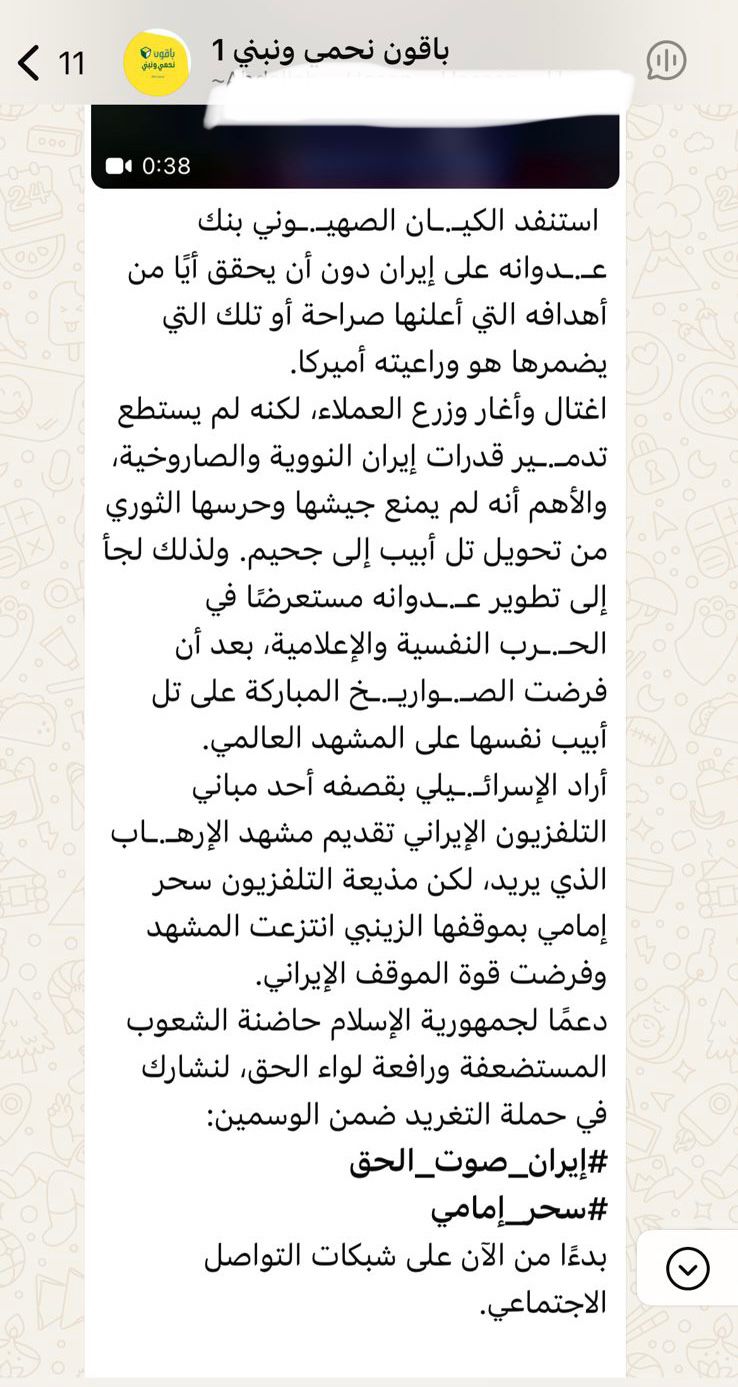
The Hashtags Spread
The hashtag “Sahar Emami” (referring to the Iranian broadcaster who appeared on air during the TV station bombing) gained significantly more traction than the second hashtag promoted by Hezbollah. By 8:13 PM Beirut time, it had spread across over 3,300 posts, generating more than 19,000 interactions. In contrast, the second hashtag, “Iran the Voice of Truth", saw fewer than 2,000 posts and approximately 12,800 interactions within the same day.
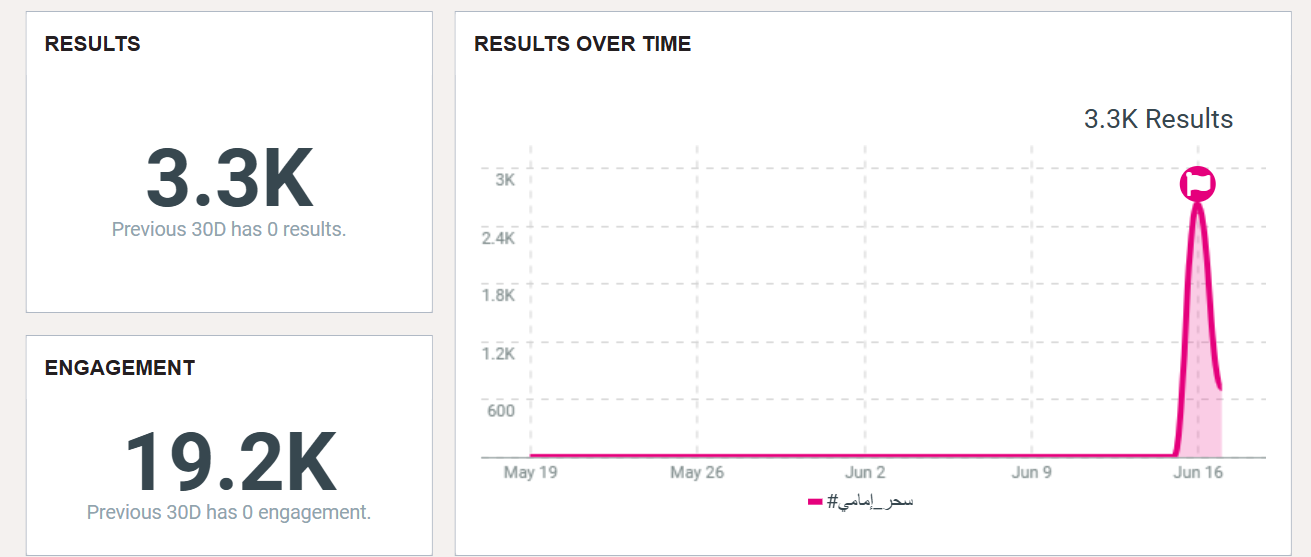
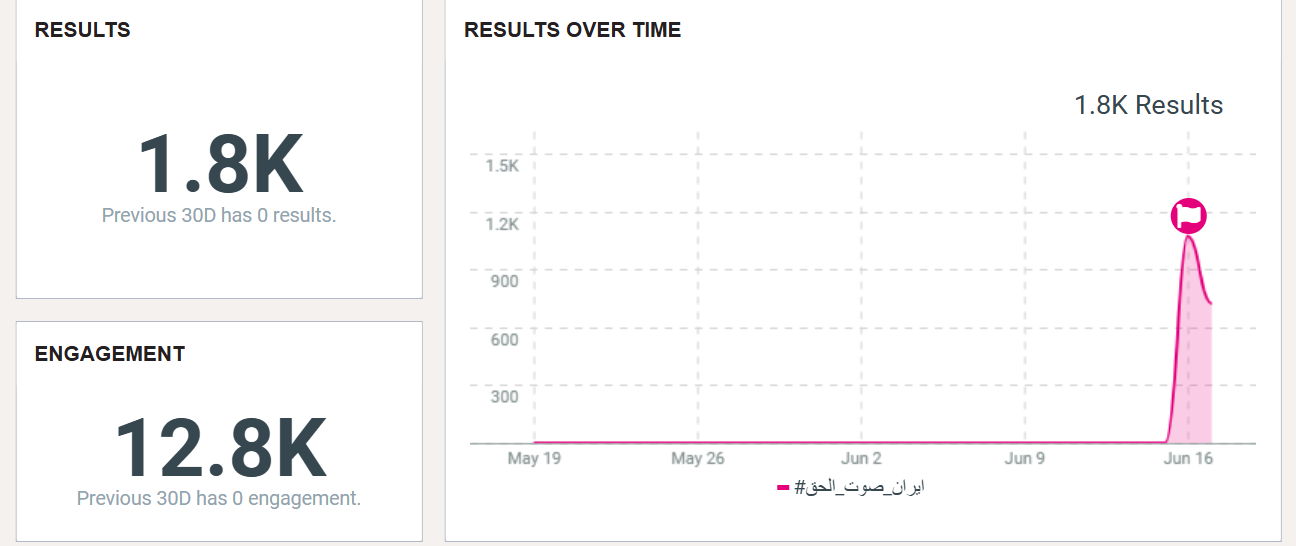
Most Prominent Participants in the Hashtags
Several prominent Hezbollah-affiliated journalists, activists, and media platforms took part in promoting the two hashtags. These included the platform "Balagh," which is directly affiliated with the party, journalist Bouthayna Ollaik from Al Nour Radio, as well as Jamal Chouaib, Ali Melli, and media figure Mohammad Kazan, who is known for his consistent involvement in Hezbollah’s digital campaigns—both official and unofficial. Also participating was journalist Hawraa Yassine, a frequent presence in media campaigns supporting the party and its regional allies.
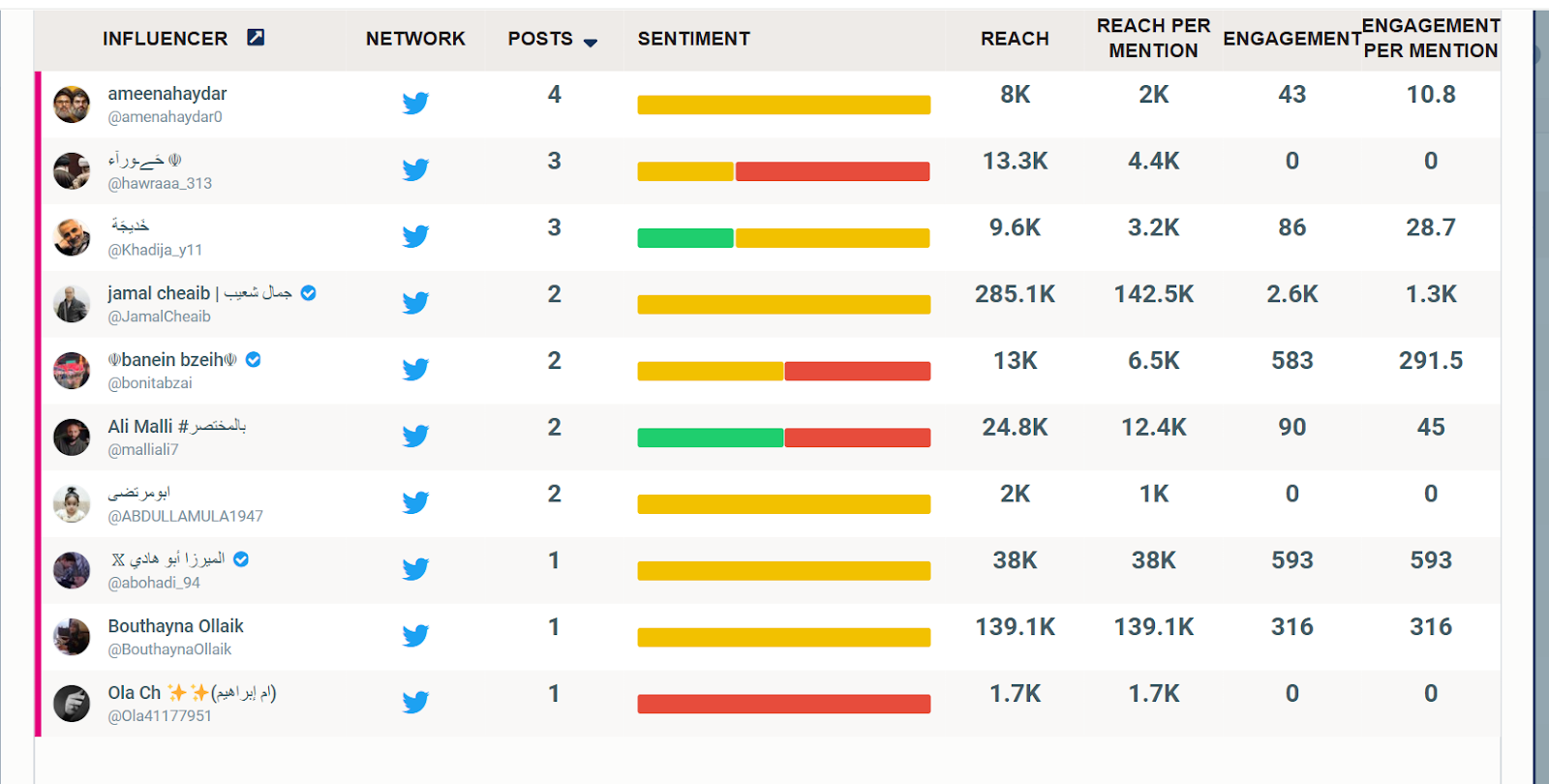
In addition to these well-known figures, many anonymous accounts supportive of Hezbollah also participated in the campaign. These included handles such as @bonitabzai, @amenahaydar0, and @MouhamadAl81334, along with a large number of other accounts that do not reveal their real identities.
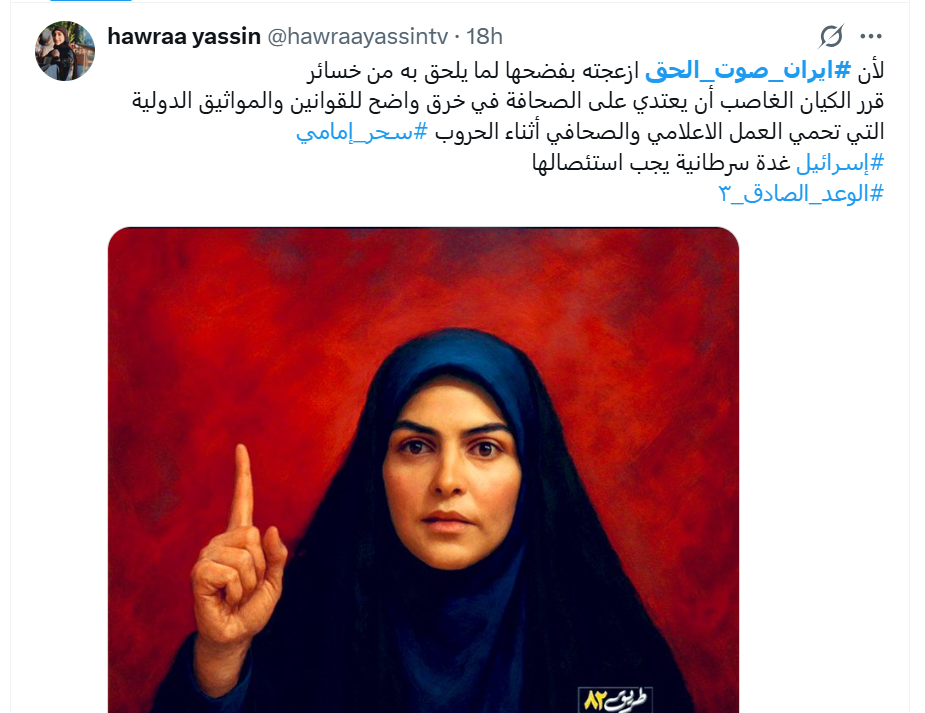
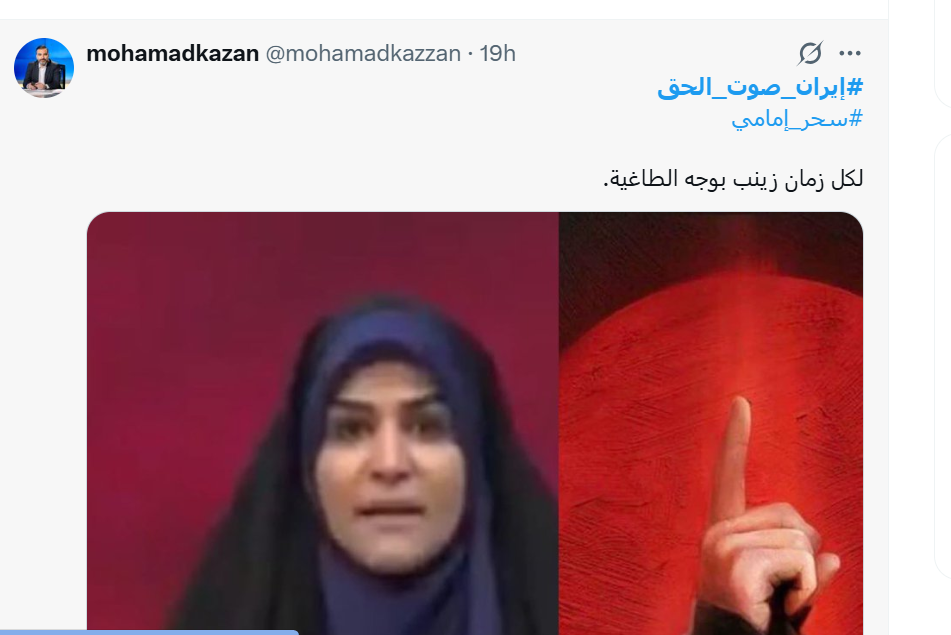
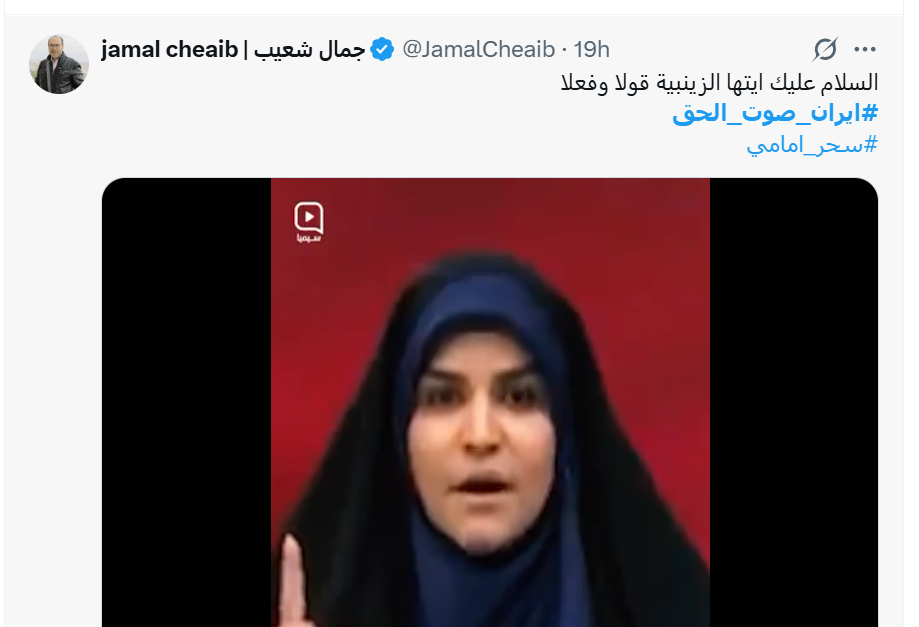
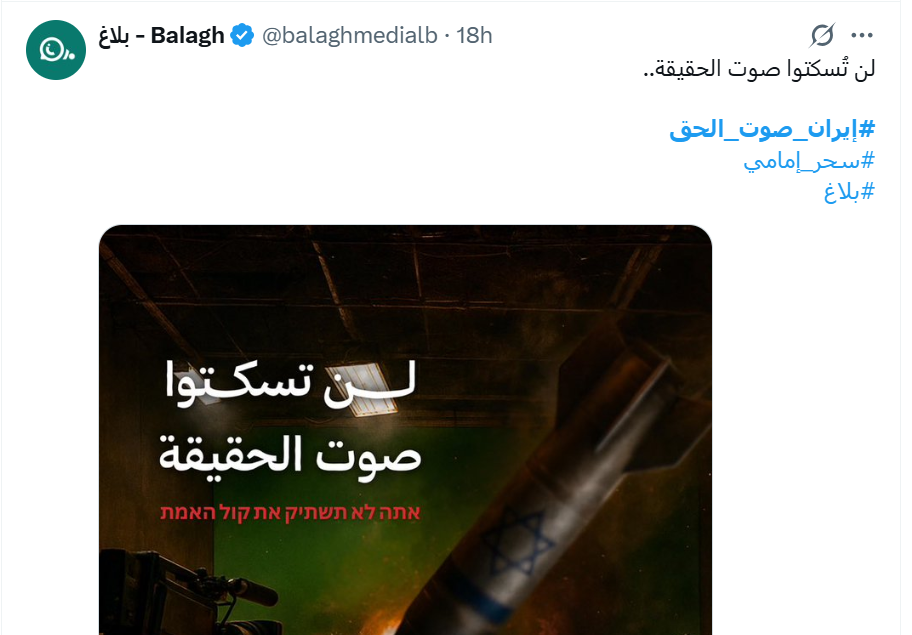
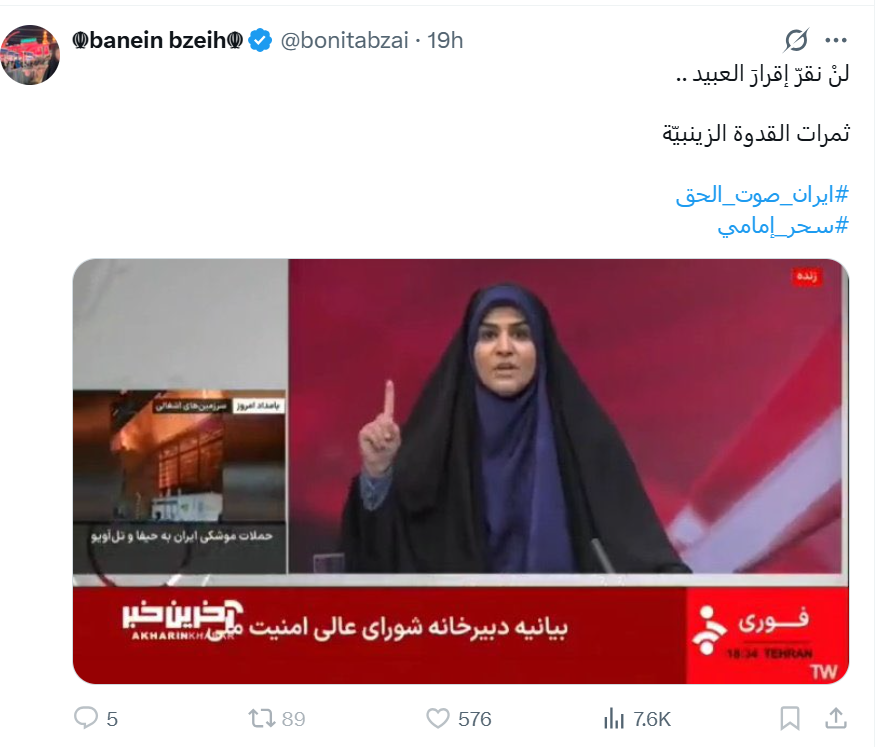
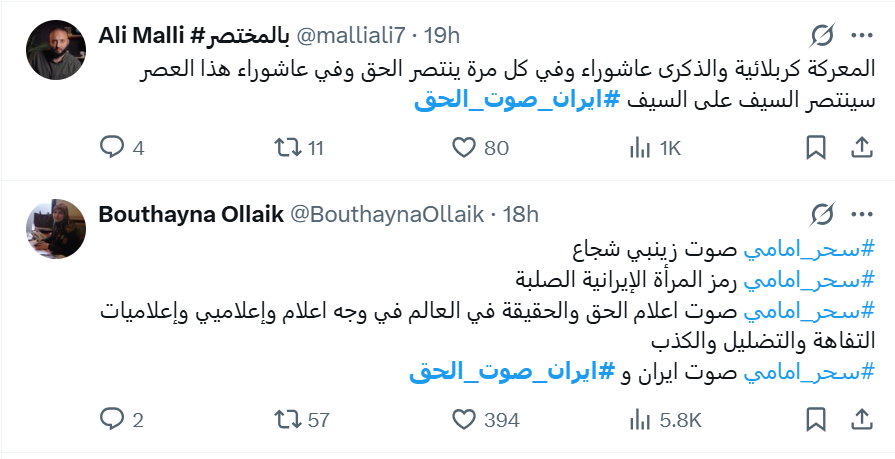
Posts circulated under the two hashtags largely focused on glorifying the resilience and bravery of Sahar Emami—particularly her raised finger gesture, which many likened to that of former Hezbollah Secretary General Hassan Nasrallah, who was assassinated by Israel in September 2024. AI-generated images and videos were also widely shared, depicting a symbolic confrontation between Emami and Israeli Prime Minister Benjamin Netanyahu.
Some posts praised Iran’s endurance in the face of what they described as "Israeli brutality," expressing confidence in Iran’s ability to resist and retaliate. The targeting of Iranian state media was framed as an Israeli attempt to silence the "voice of truth." A number of posts also included sectarian language emphasizing the strength and steadfastness of the Shiite community.
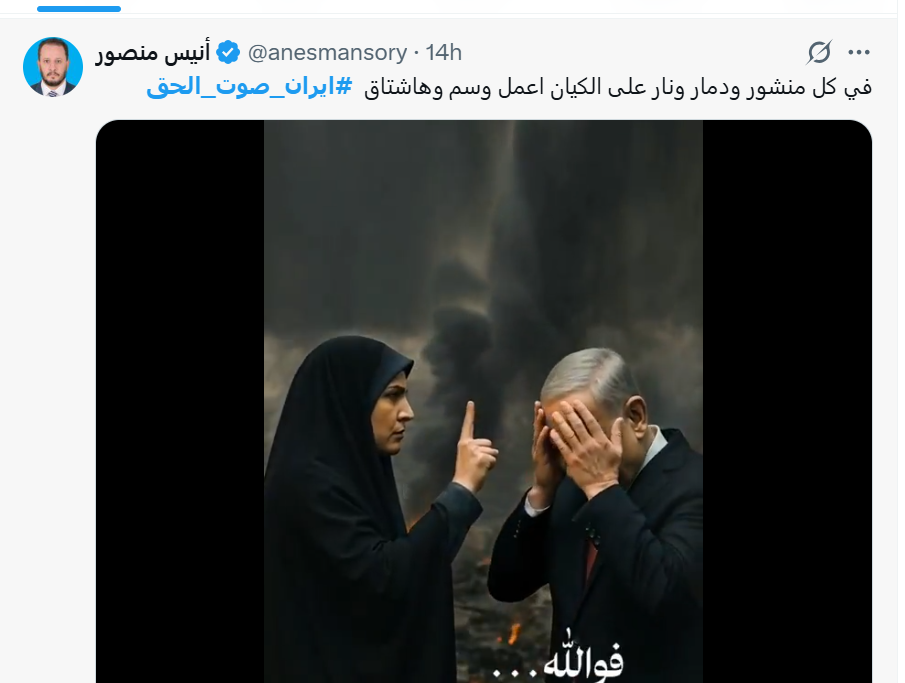
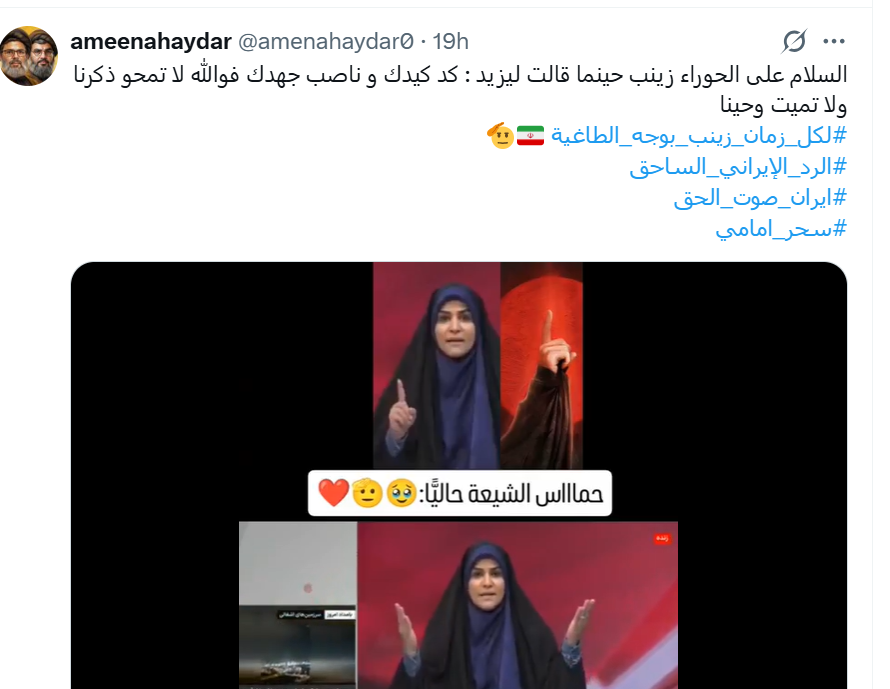
~.png)
Most of the posts under the hashtag #إيران_صوت_الحق (Iran the Voice of Truth") originated from Lebanon, followed by Saudi Arabia and Yemen.
In contrast, the majority of posts using the hashtag #سحر_إمامي (Sahar Emami) came from Saudi Arabia and their tone was predominantly negative, reflecting a divergent reaction among Saudi users toward the Iran-Israel confrontation.
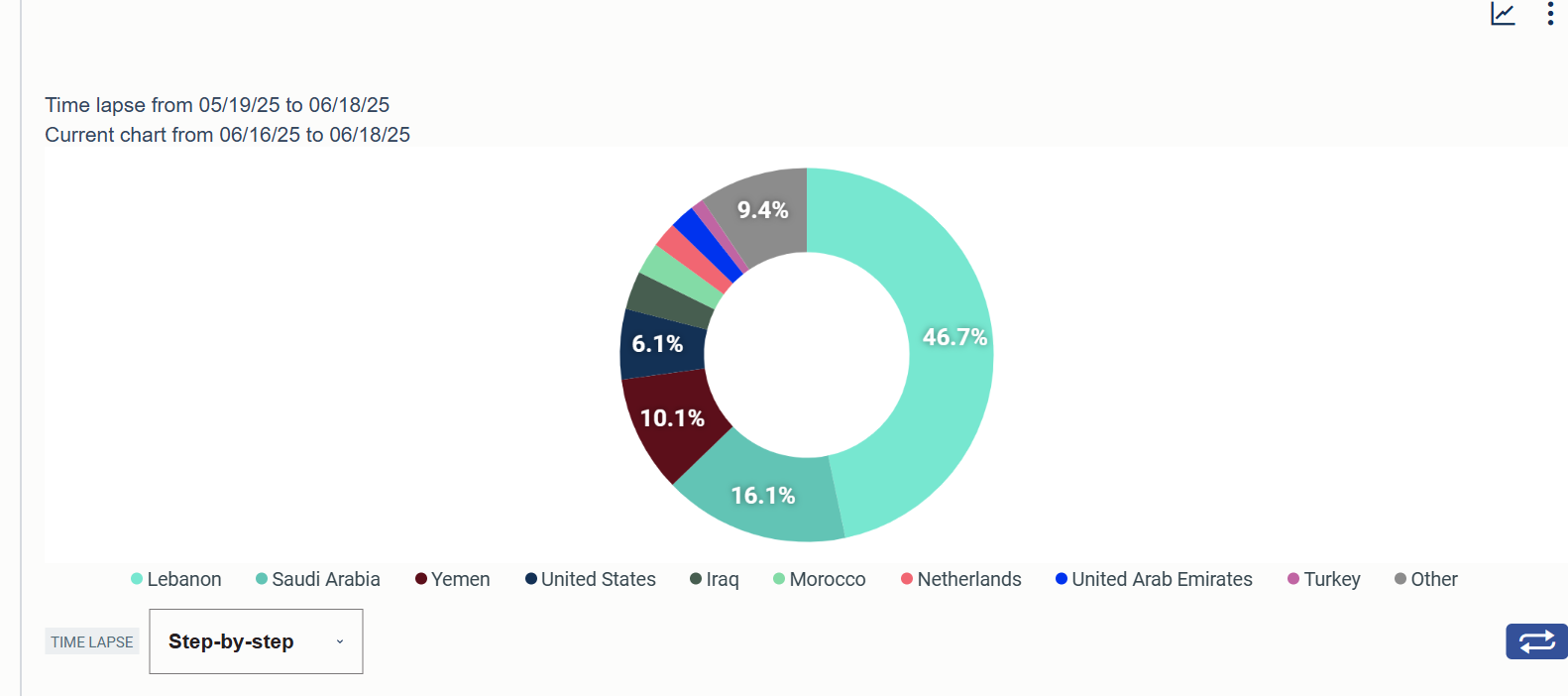
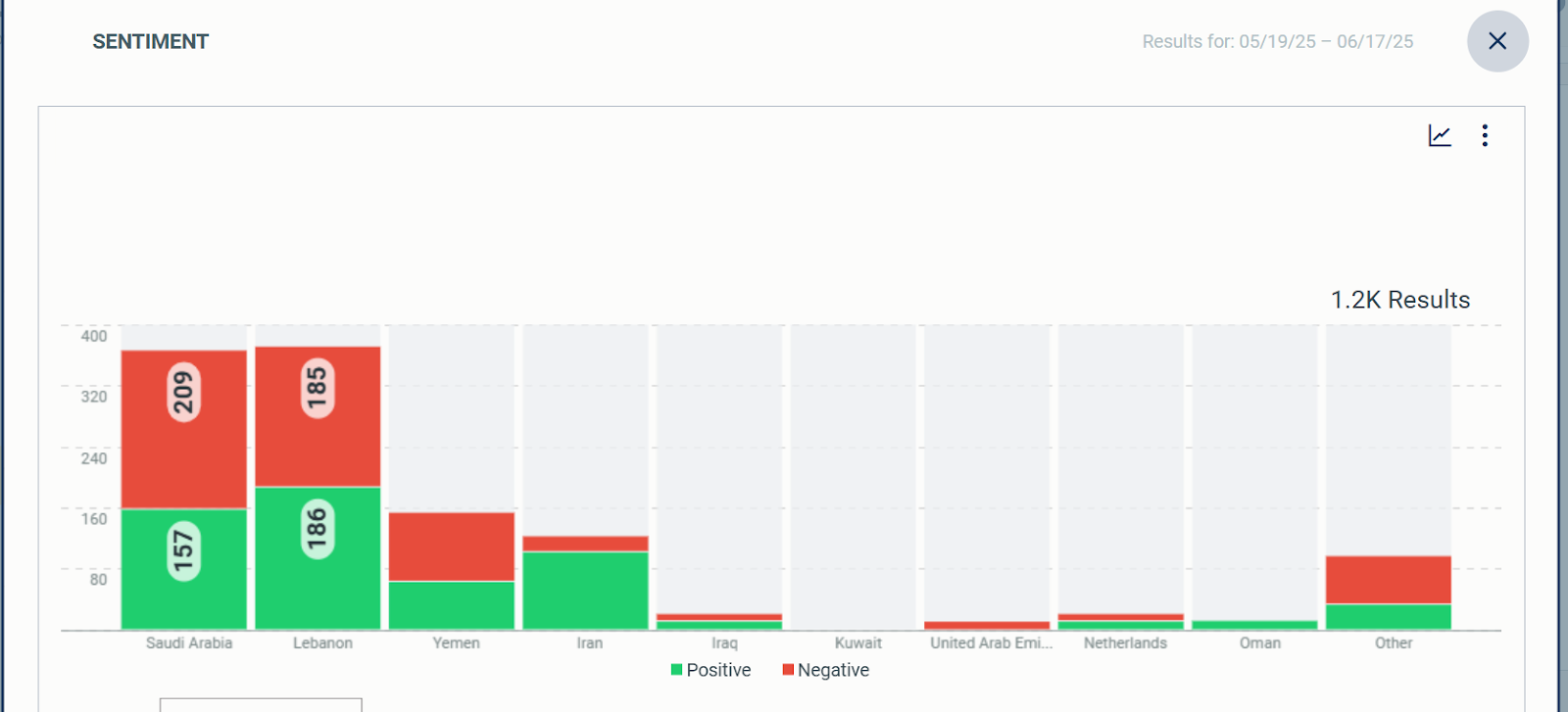
Saudi Arabia and the Gulf Watch the War
From the earliest hours of the confrontation between Iran and Israel, the hashtag #الحرب_الإسرائيلية_الإيرانية (Israeli Iranian War) emerged, generating 22,800 posts over four days and attracting nearly 90,000 interactions.
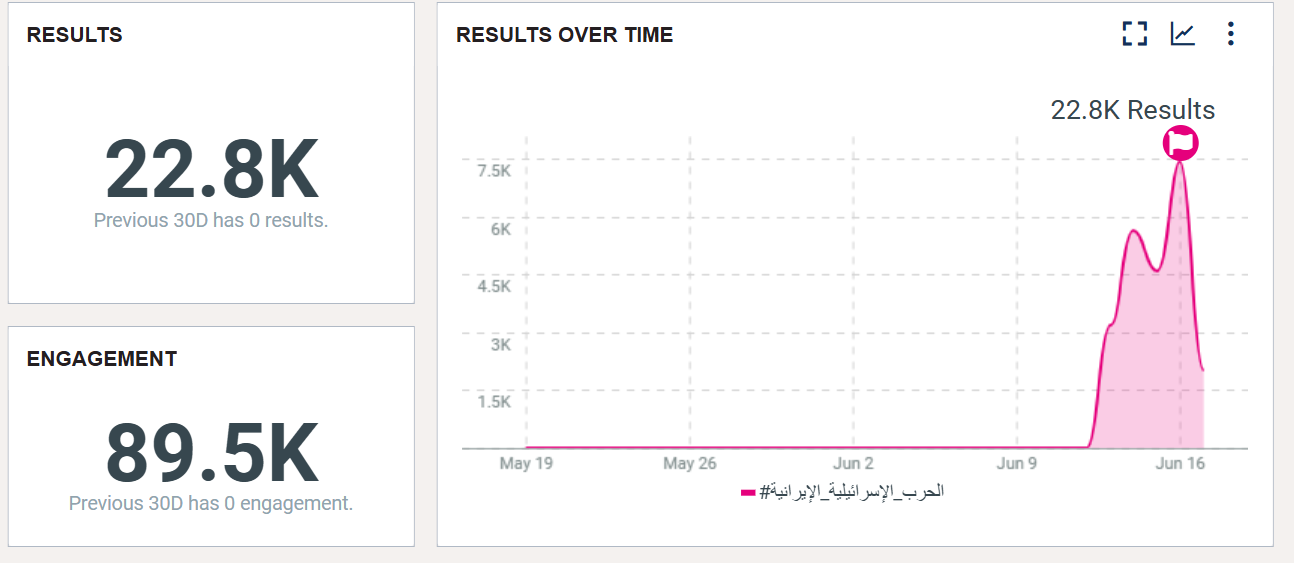
Despite attracting users from various political affiliations and ordinary users, the hashtag also saw significant activity from Saudi-aligned accounts, such as @abw56166 and @Shasholiqa, which were among the most active on this hashtag. These accounts posted content celebrating the Israeli attack on Iran, while also criticizing Iran's stance on the Palestinian cause.
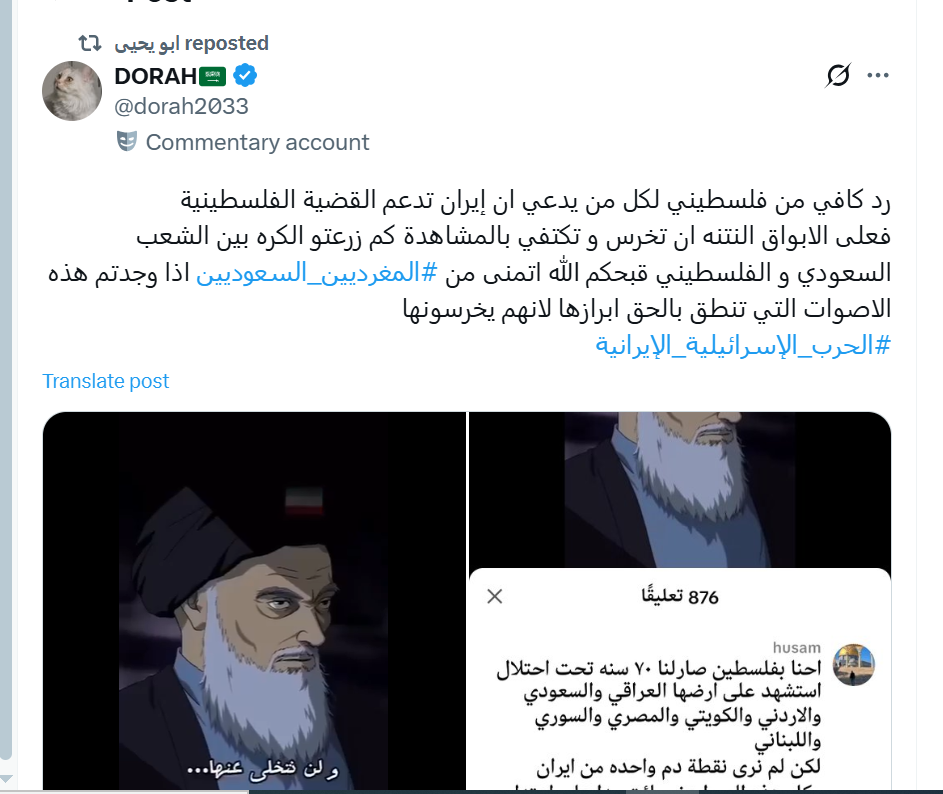
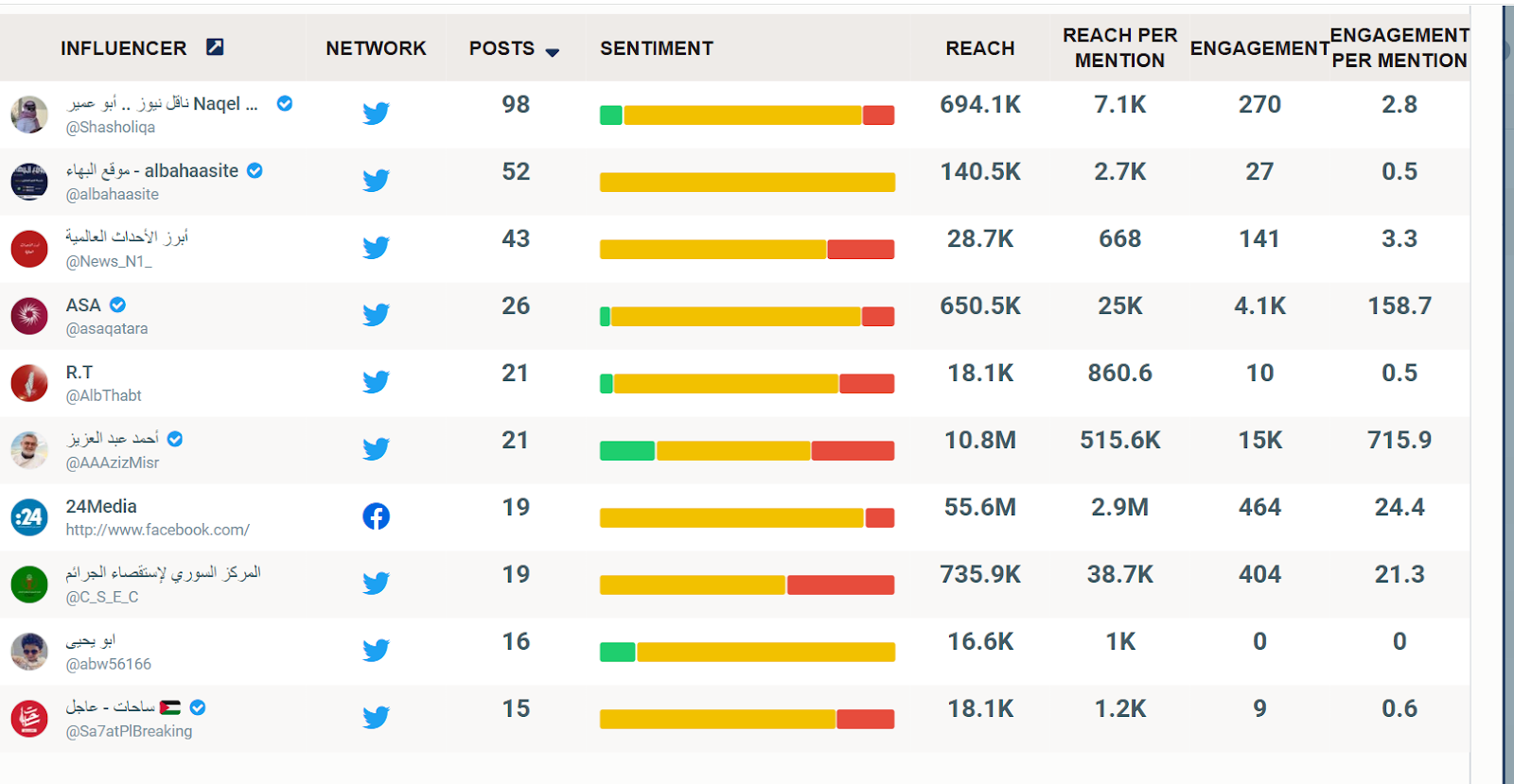
The hashtag also served as an opportunity for other Saudi accounts to attack Iran for its support of the Houthis against the Arab Coalition, which was led by Saudi Arabia under the military operation “Decisive Storm.”
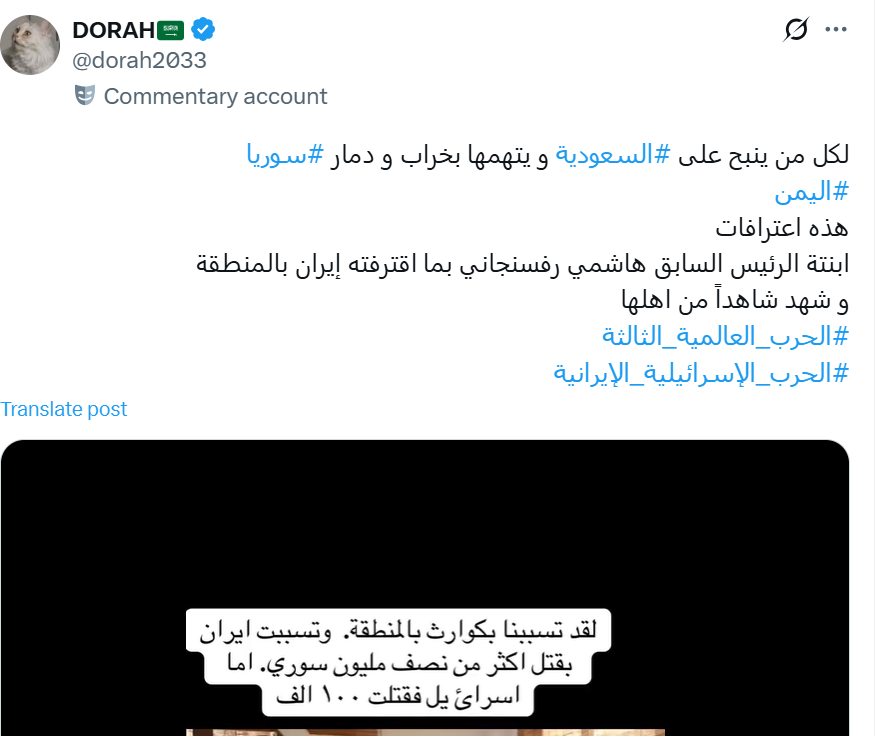
Saudi Arabia topped the list of countries generating interactions on the hashtag, with 5,500 interactions, including 3,000 negative ones. Users from Kuwait, the UAE, and Syria also contributed to the discussions.
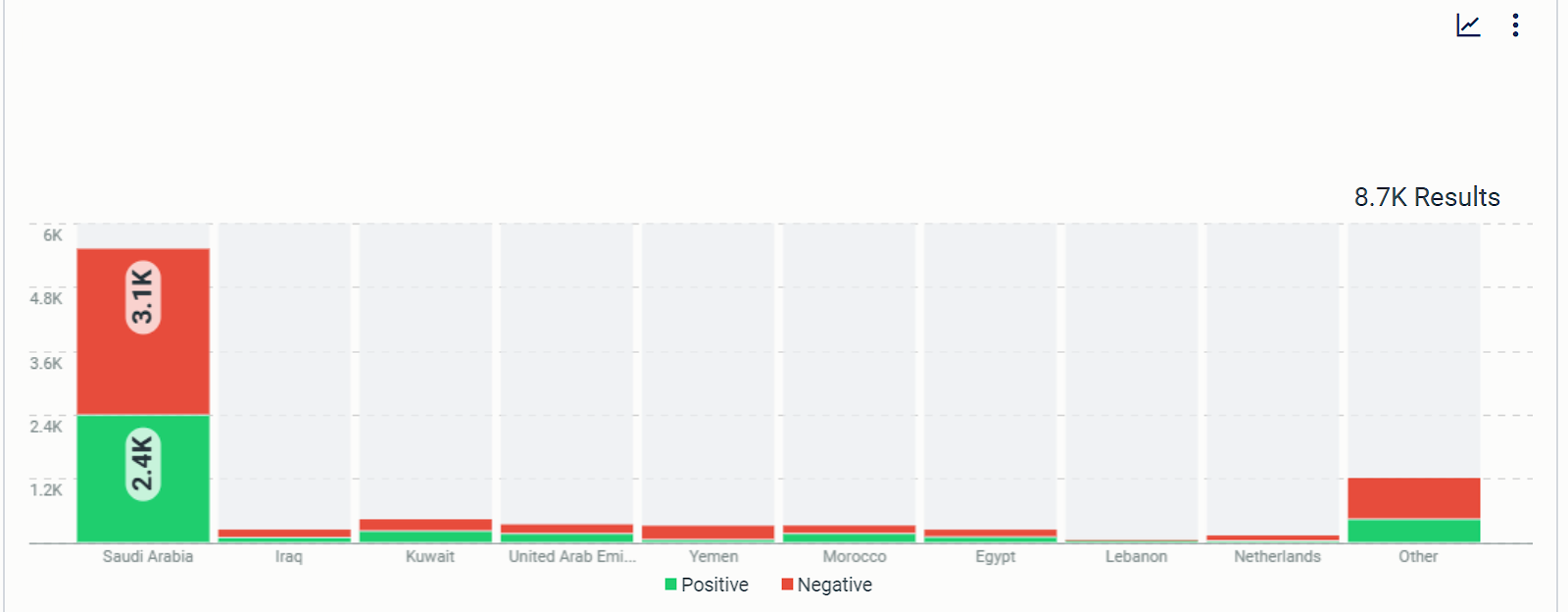
Dominant Narrative
“[God] Strike the oppressors with the oppressors” — this slogan encapsulated the dominant sentiment in most Gulf-based posts under the hashtag, showing a clear tendency to condemn Iran more than Israel. The enjoyment at the mutual destruction of both sides was evident in AI-generated images shared by Saudi users, as illustrated in the image below.
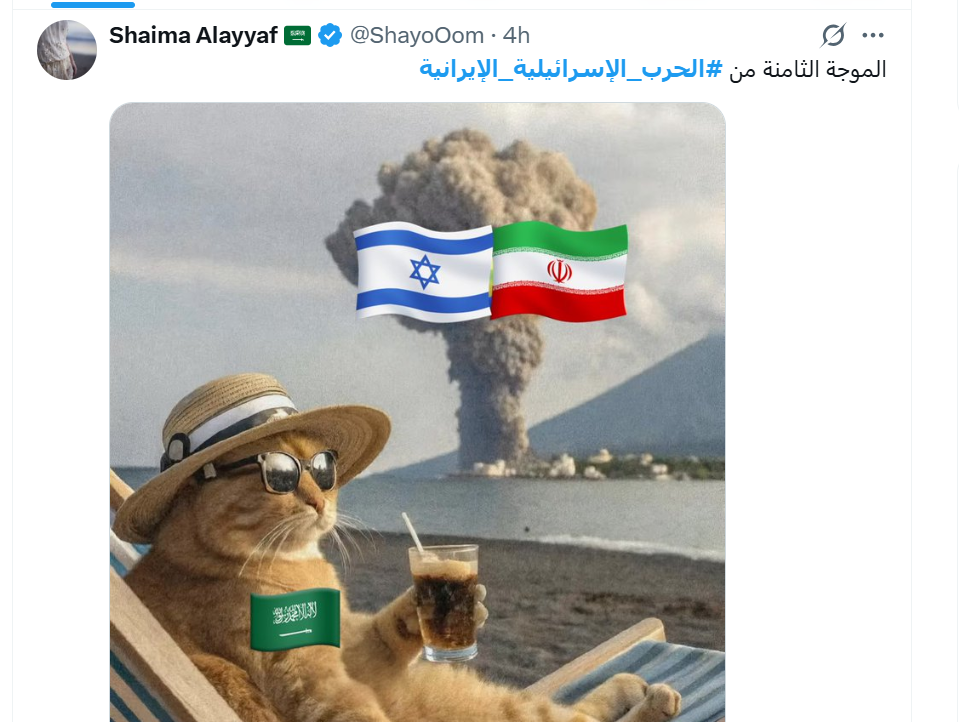
In contrast, Syrian activist Anas Al Najjar, a supporter of the new transitional authority in Syria led by Ahmad Al Shar’a, posted a comparison between what he described as the “crimes of Iran” and the “crimes of Israel,” in a clear attempt to highlight Iran’s violations and portray them as more severe.
Iran had supported the former Syrian regime under Bashar al-Assad in its suppression of the Syrian revolution that began in March 2011.
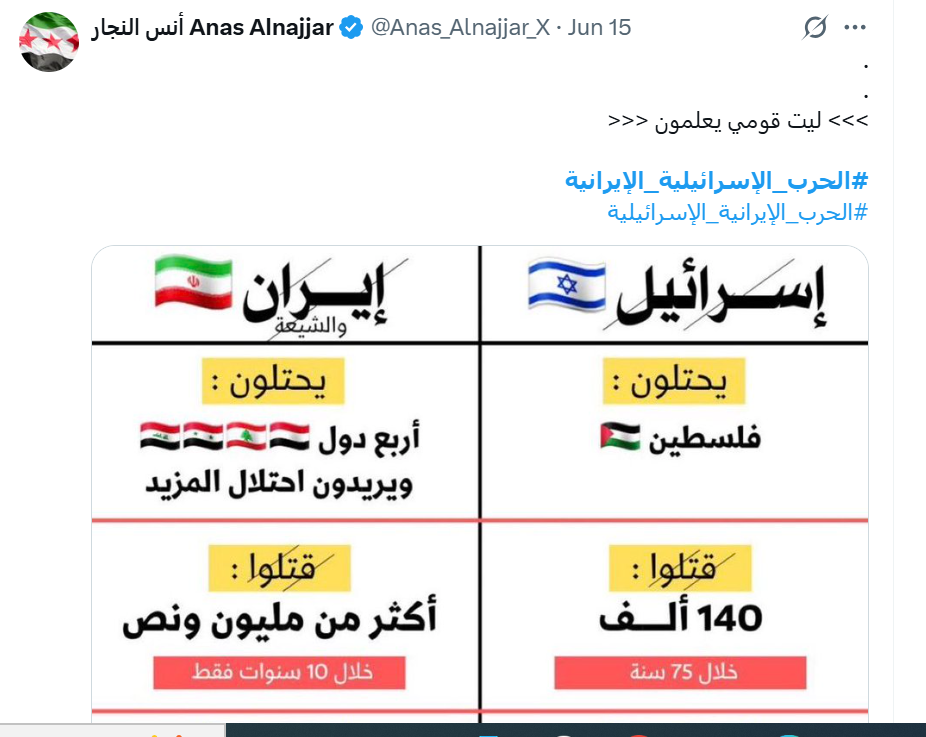
Some users posted a map of the region under the hashtag "#الحرب_الإسرائيلية_الإيرانية" (Israeli Iranian War) that included sectarian phrases reflecting the divide between Sunni and Shia Islam.
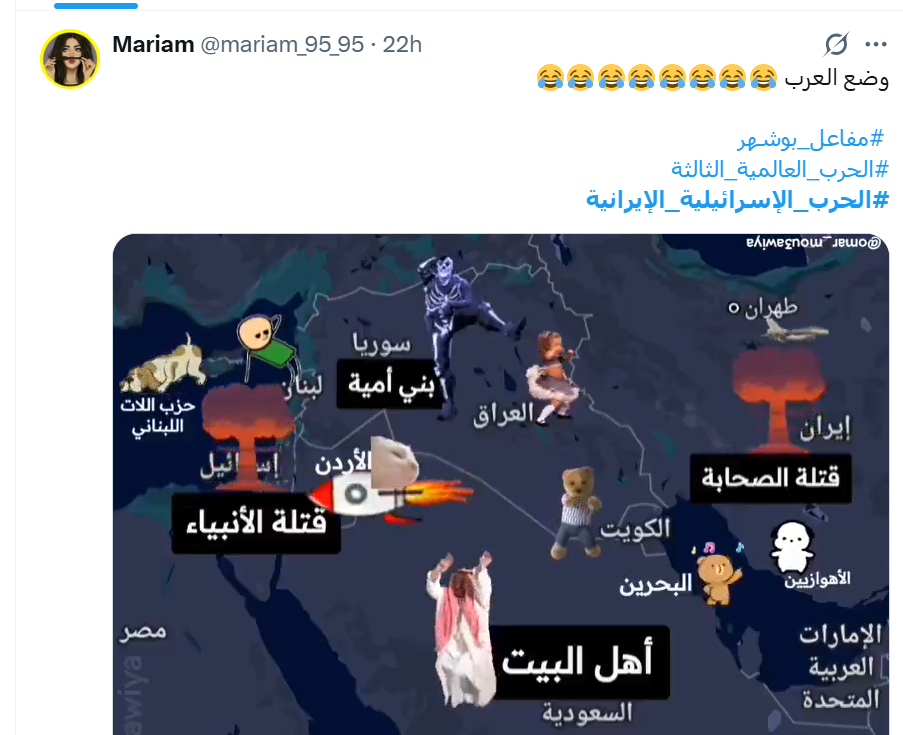
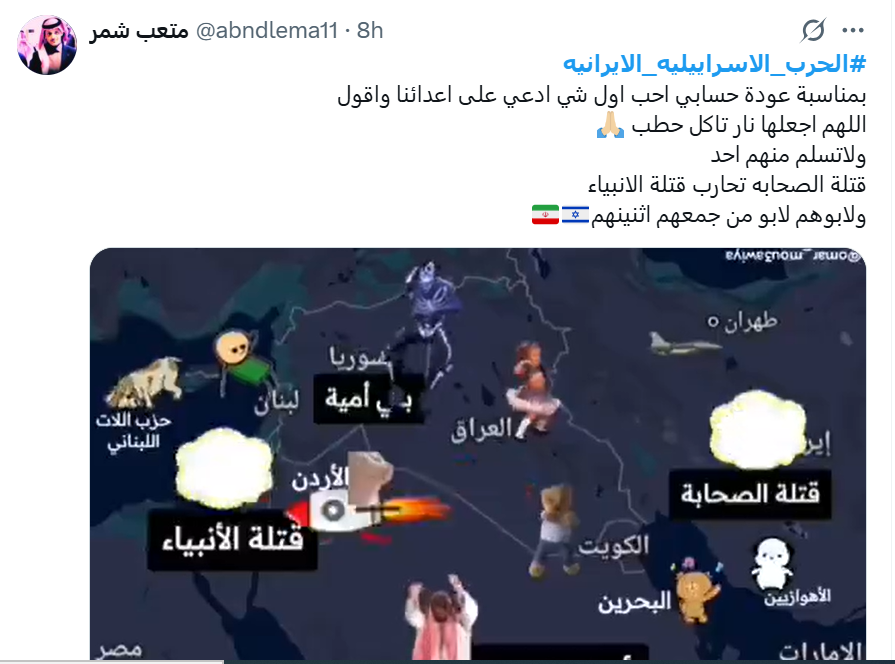
This map reflects the broader sectarian tone found in many posts under the hashtag, with some using it to express their satisfaction with the clash between Iran and Israel.
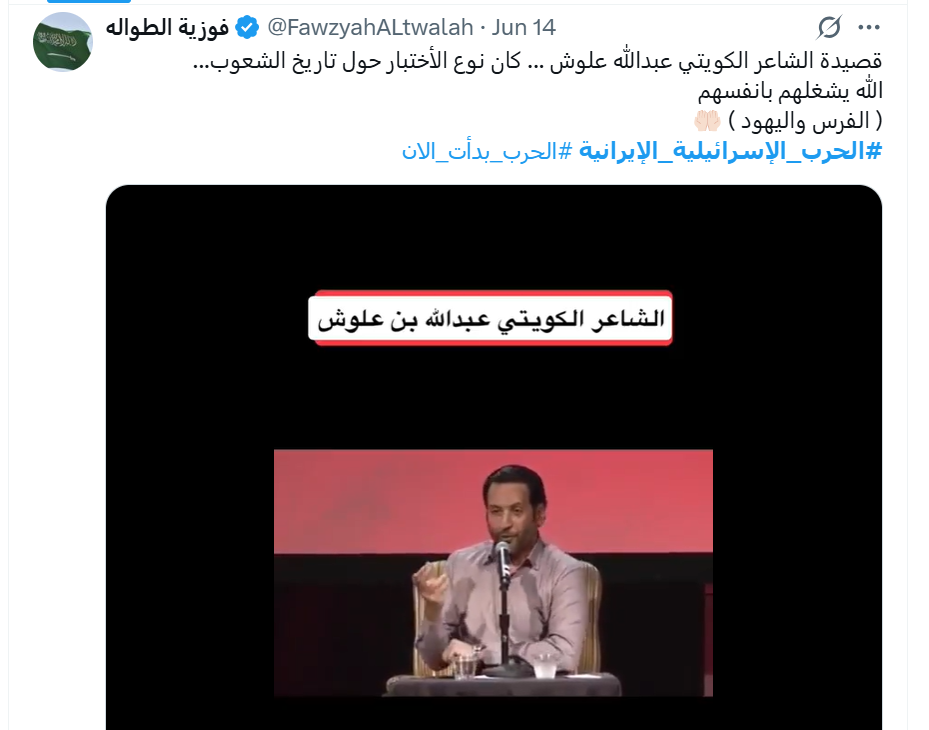
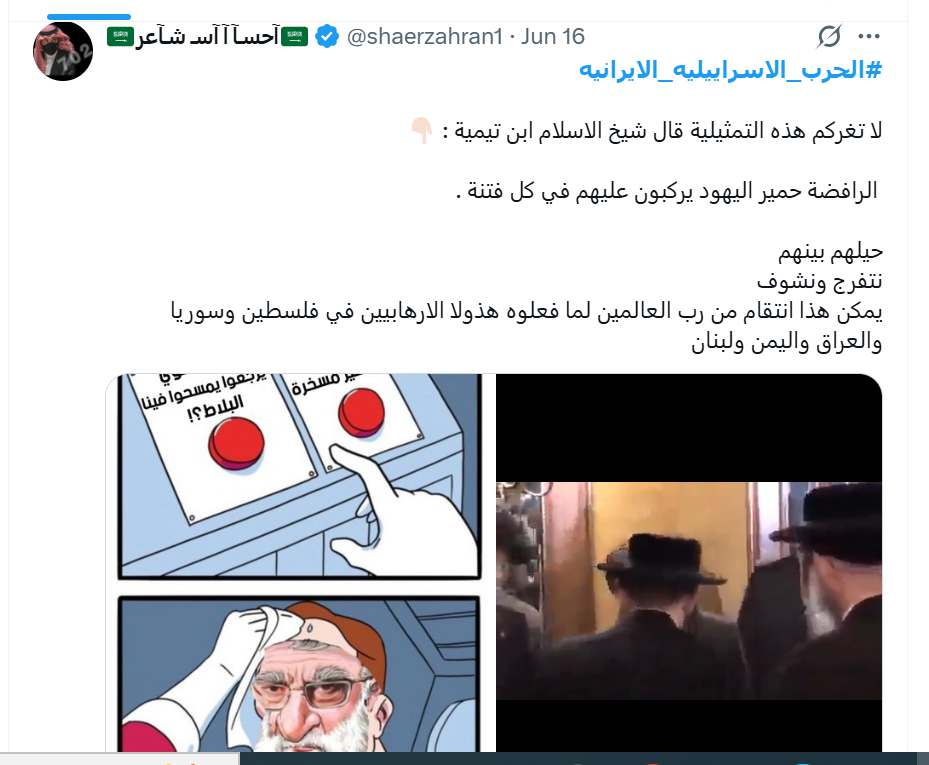
Prepared by: Charbel Al Khoury
